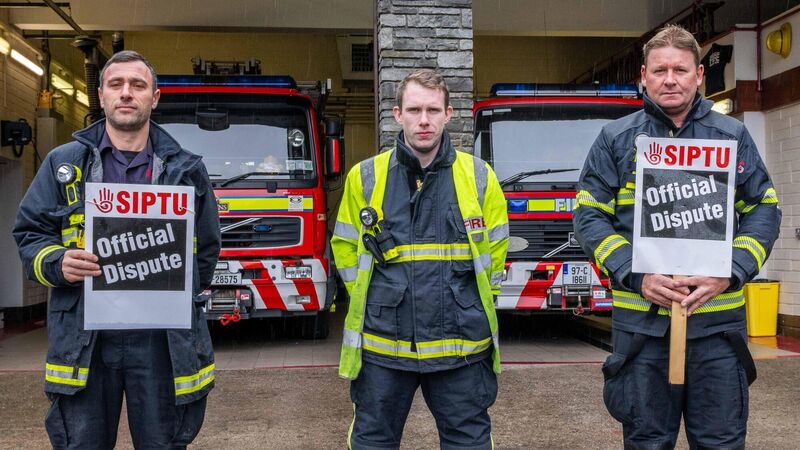Retained firefighters back on picket lines as talks conclude without agreement

Despite the heavy rain, Kinsale firefighters were on the picket line this morning. Picture: Andy Gibson.
Retained firefighters were back on the picket lines as talks between Cork City's full-time firefighters and city management at the Workplace Relations Commission (WRC) on their specific industrial action ended without agreement.
Pickets were placed at retained fire stations across the country as members of the retained service resumed their strike action over pay and conditions in the service. They maintained their response to life-threatening emergency calls, however.










